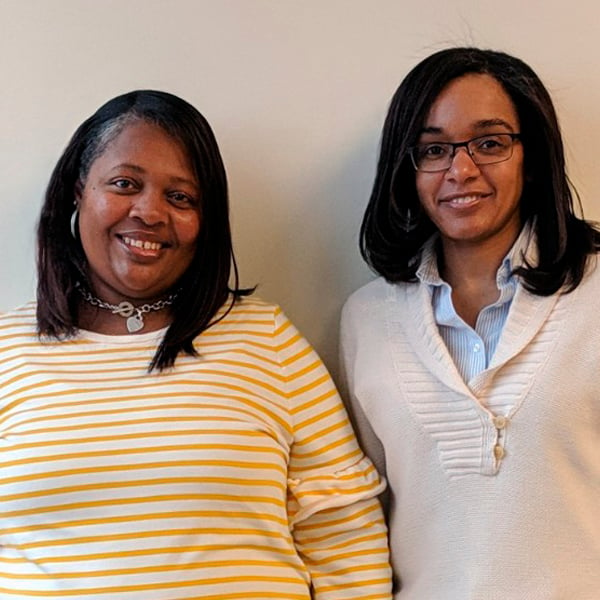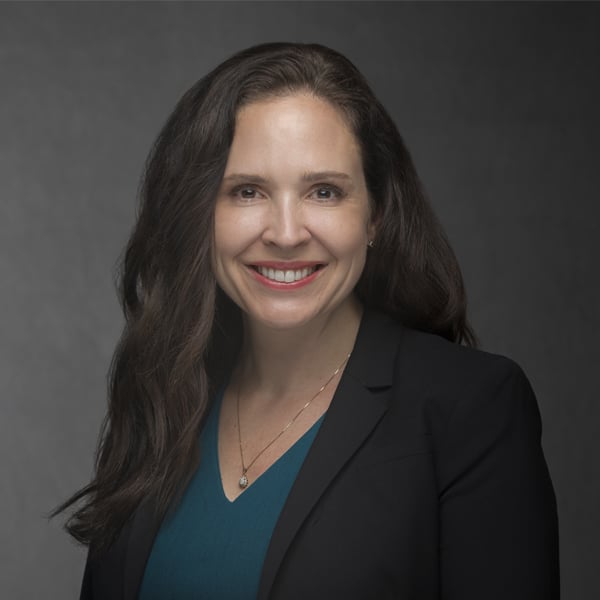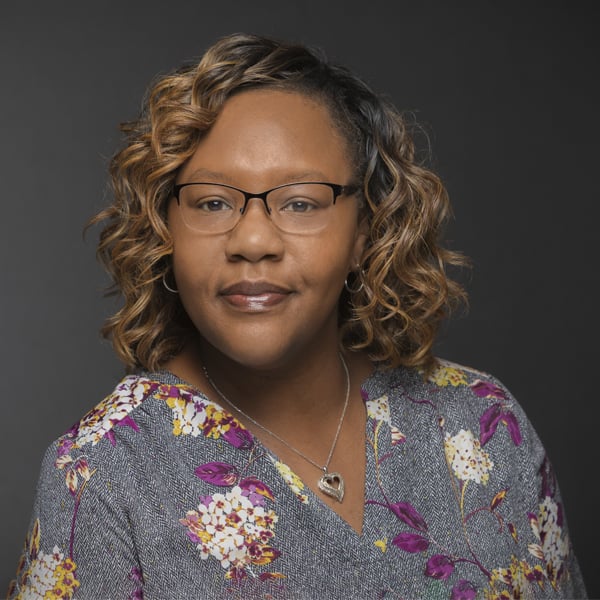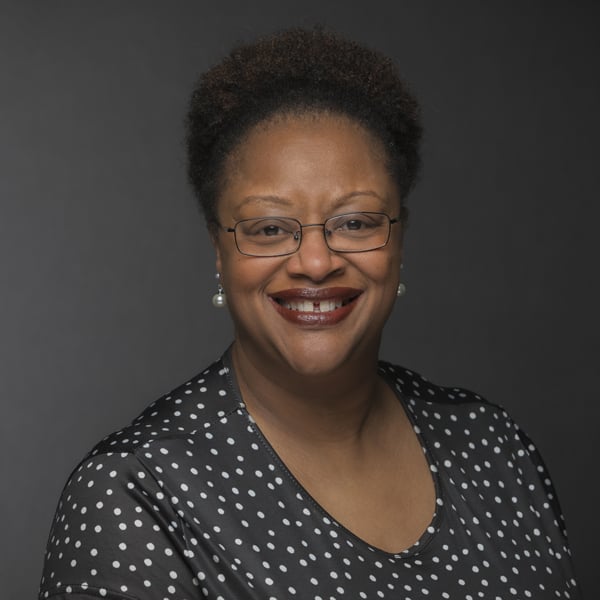Ed Gonzales is a corporate and securities law attorney in Omaha. The story of how he got here takes a few twists and turns, beginning in Brooklyn. The son of a blue-collar single mom, Ed admits he was always a sharp kid and liked to argue, but he never considered attending college.
“When I was in high school, I had no college funds and I was not on the path to college at all, though I wanted to be a lawyer. I had injured my foot and went to a podiatrist in Brooklyn where I grew up,” he says. “I built a rapport with the doctor as she treated me. At one visit, she mentioned she’d been a substitute teacher at my high school and requested to see my files from one of the deans. She asked, ‘Why aren’t you in college? Because you have the apparent ability.’ I told her I’d gotten a lot of mailers from my SAT scores, but I had no idea how to filter through them and my parents hadn’t gone to college. I had no resources to go if I wanted to.
She said, ‘If you want, go through the mailers and pick three you are interested in,’ and she would help fill them out and pay the application fees. I applied to three schools, two in the State University of New York system, and the University of Southern California.”
Ed was accepted into all three schools, but one made him an especially great offer. “I ended up getting a full scholarship to USC. I did well enough at USC that I was eventually able to go to law school at Boston University on a partial scholarship. I took out loans and did work-study, and earned money during summers for living expenses, but the scholarships made it doable.
That small window of effort by my podiatrist made a huge difference in my life. She really put me on the path. As I’ve had this conversation over the years, I’ve tried to look her up and find her but she disappeared. Even with social media and all the other resources we have today, I can’t find her again. I’d like to tell her that her effort effected a big change.”
Ed says the woman’s actions—and the huge impact they had on the trajectory of his life—are what drive him to pay it forward through pipeline activities in an effort to encourage more minorities to enter the legal field.
“I figured the more I can contribute, the more insight others will gain as to why or how I went into law when I had almost no exposure to it growing up. I think a lot of people have family members or neighbors who are lawyers and they have the opportunity to explore that more. I happened to fall into it by the suggestions of others.”
Ed admits his story is a bit unusual, and unfortunately, not enough has changed. “After years of looking at this, the continuing lack of minority attorneys has ultimately been determined to be a pipeline issue. You can’t recruit them if they don’t exist. I think the effort has certainly been made by law firms, and Kutak Rock is encouraging folks to get in the pipeline—from every viewpoint, not just racial minorities, but minorities in economic status, as well.”
But, he says, pipelines take years and potentially decades to fill in. “People have to plan from high school to get into college. They have to succeed at college to get into law school, and succeed at law school to be eligible for a position.”
And until that begins to happen more, pipeline efforts will continue in full force. “The pipeline groups do bring in kids who ask good questions and may have a germ of an idea. Some don’t have an inclination toward the law, but they’re willing to come to Kutak Rock and listen, and it might plant a seed and get them on the path to thinking about it long-term or at least exploring it further. And if not, they might go home and tell their sister, brother or friends about it and might plant a seed there.
It’s a matter of constantly planting the seeds, and nurturing them and hoping they’ll blossom into something that’s helpful for them, and in turn, helpful for society.
“People say, ‘If I can reach just one person, that would be great.’ That’s what I want to do. I’ve spoken at a lot of events, and occasionally I’ve seen a kid perk up and say, ‘Wow, that’s a great idea.’ I’ll give them my card and tell them if they have any follow-up questions to let me know, or even if they just want to bounce ideas off someone. Maybe at some point that will happen, and maybe someone’s already on the road because of something I said. That would be a great success to me.”
At my last job in Boston, I was a member of our diversity committee for years. I was involved before that just as an attorney with various initiatives. Then there was a call to action by corporate in-house counsel in about 2001, which helped precipitate more activity. It just kept snowballing and became part of more and more actions. When I came to Kutak Rock, I certainly looked into what was going on then. I eventually became part of the National Inclusiveness and Diversity Committee when the opportunity arose to first serve on the committee, and then as co-chair.
We all have our own perspective. We don’t really see things from another’s view until we think about it, and I never realized that there was such a scarcity of minority attorneys in practice, especially in large firms. I previously practiced in Boston, so it was more diverse than Omaha, but not as diverse as it could be. There was a lot of effort to diversify, but it didn’t progress as I hoped it would.
The improvement I’ve seen has been in the efforts. There’s a lot of support from Kutak Rock to say, ‘Here are the ideas from these different perspectives and you know what? Let’s see how we can implement change.’ Improvement in the actual ranks has been disappointing because it’s just a matter of fact that it’s hard to find folks to fill the ranks.
In one of the groups I used to belong to for mentoring grade-school kids, we would get together to discuss issues with our mentees and share thoughts and strategies, and there was an attorney who had a mentee who wanted to be a lawyer. He said, “She comes from a difficult situation.” Like me, she came from a single-mother household with limited resources. He asked, “How do I tell her and let her down since it’s not feasible?” I restrained myself and told him, “You cannot say that.”
We need to allow others to fill in the blanks and let people know that what you’re seeing from your own perspective doesn’t reflect what others have experienced. And that really adds value when you try to tackle problems both from a legal perspective and a cultural perspective.
It’s a problem. Omaha, Midwestern cities that don’t have large minority populations, it’s hard to get people to stay there because they have no connection. For example, if you want to recruit someone from Chicago, it’s hard to come to Omaha if you don’t feel as welcome as you would in Chicago or Atlanta or another more diverse city. We do have offices in those places, but then there’s more competition. They should be more diverse—Atlanta, Los Angeles. I think compared to some of the less diverse cities where we have offices, they are a bit more diverse than other comparable law firms, but those numbers fluctuate. It’s amazing the impact just one or two people in each office can make because the numbers are so small. You add one number and it jumps a lot, but if you subtract a number it goes down a lot. I’m hoping at some point we can get to the stage where we have a critical mass that will make those fluctuations less dramatic.
It’s incumbent on everyone to share that experience because there are a lot of people who don’t have the proximity to professionals to understand what they can and can’t do.
You tell them what it takes, you tell them how it can be done. And whether it comes to fruition is up to them. But you cannot dissuade someone from pursuing something that seems like a dream. Someone easily could have done that with me and because I respected that person’s opinion, I’d assume they were right. You can never do that. The other attorney obviously learned that this was the proper approach, but there are others out there who may think they’re doing someone a favor by telling them not to pursue that high bar because you’re likely to fail. You can certainly be realistic and tell them it’s a lot of work, here’s what you have to do starting now, and keep your eye on the ball. It’s doable, it just requires extra effort or resources and some luck in some cases. Today there are a lot more ways to access those resources on the internet, and people who didn’t have a computer 10 years ago, now do. So many scholarships and other resources go unused because people don’t know to apply for them.





